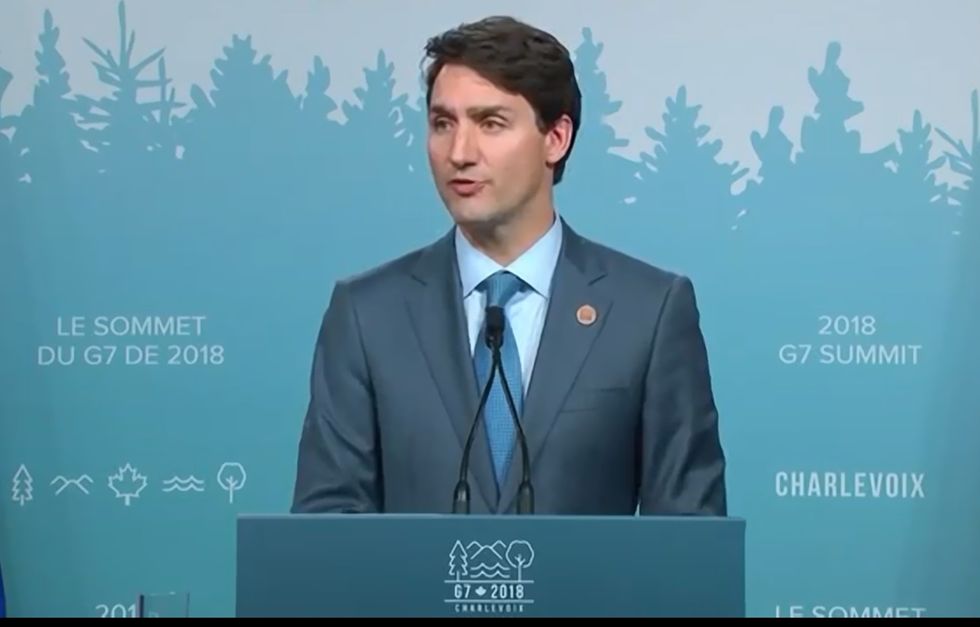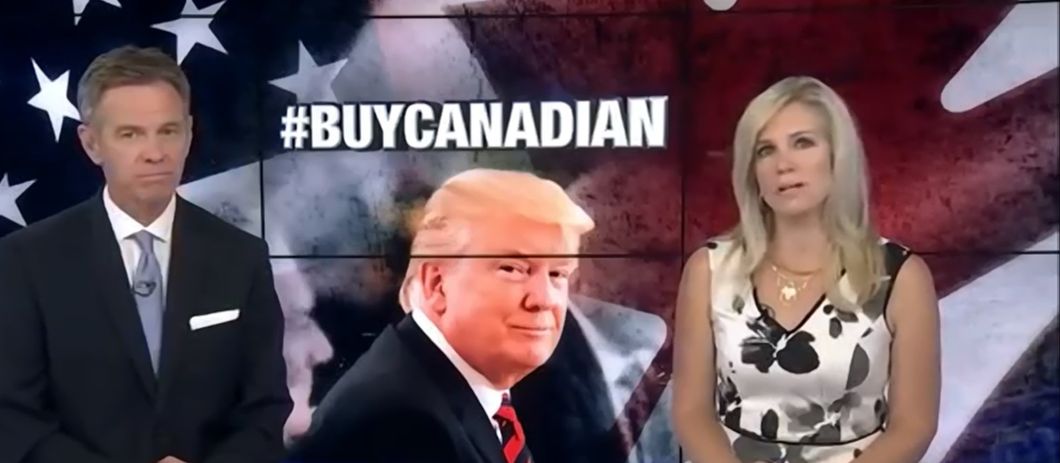Canadians Have More To Lose From Their Food Fight With Trump Than Americans Do
Trump is threatening our economic growth once again, but it may come at a greater cost for Canadians.
Once again, Trump is threatening our economic growth.
After Trump's tirade on Canadian Prime Minister Justin Trudeau during the G7 summit, Trudeau decided that Canadians will "not be pushed around" by Trump or the United States.

In response to their prime minister, Canadians have started their own war with the United States: a war on American products for that matter.
On Twitter, photos of Trump-free grocery carts and the hashtags #BuyCanadian and #BoycottUSProducts are going viral.


Among the stores Canadians are boycotting are Whole Foods and Amazon, TJ Maxx and Marshalls, Hobby Lobby, Macy's, Walmart, Google, and Apple. However, they aren't boycotting these companies just because they're American. These companies either carry Trump products, endorsed Trump, or have ties to the gun industry or NRA.
You can find a complete list of the companies here.
Not only are Canadians boycotting stores but they are also staying up north for vacations.
But what seems like well-intended advocacy for Justin Trudeau may actually hurt Canadians in the end.
Canada buys $25 billion worth of food from the U.S. each year, which makes it the biggest buyer of U.S. products in the world. This is because Canadian food, especially Canadian produce, is expensive.
Canadian food prices are becoming more inflated.
Back in 2016, a kilogram of celery rose to $4.29 from $2.77 the previous year. About 81% of fruits, nuts and vegetables are imported.
According to Sylvain Charlebois, dean of management and professor at the Rowe School of Business at Dalhousie University in Halifax, that is "one-eighth of the entire food pie [Canadians] eat each year."
By taking out that one-eighth, Canadians will find it harder to buy more domestic products.
Charlebois warns Canadians, "Everyone loses in a trade war, but we are likely to lose more than in the U.S."




















